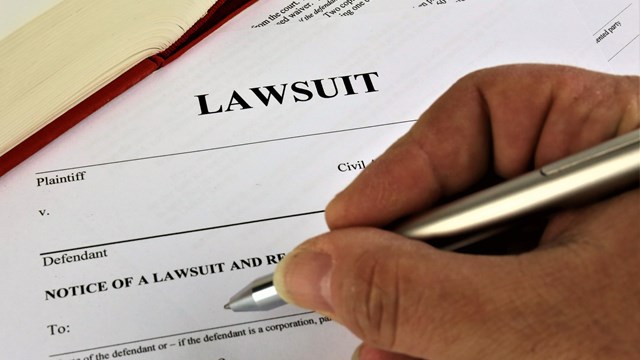Laying down the law in your building or association doesn't have to be a painful process. When it comes to creating house or community rules, careful planning and a healthy dose of common sense can make the process smooth, leading to happier homeowners and a stress-free executive board.
Taking Pen In Hand
House rules go by many different names—in most circles, they're referred to as bylaws, the second most important document guiding condo and co-op communities. The first document—the master deed—creates the condo association and defines ownership of land and units, attending to fundamental issues and responsibilities. The bylaws, or house rules, generally go into more detail about functions, regulations and the day-to-day operations of the community. These affect unit owners more closely than the master deed does.
Responsibility for drafting bylaws and community rules falls to the executive board of an association, and they are drawn up soon after the establishment of the community. As the years progress, the list of bylaws may grow, depending on the growth of the building or community and how detailed the original rules were. "There is a whole plethora of issues that are addressed in the bylaws and rules," says attorney Kenneth Lipstein of Westfield. "It can range anywhere from whether barbecue grills can be kept outside to whether pets are allowed, if parking spaces will be assigned, how the common areas can be used. Basically, it addresses anything that might affect people living together in multi-family situations."
The key to a successful set of bylaws is flexibility, says Dennis Casale of the law firm of Pepper Hamilton in Princeton. He works frequently with developers building condo communities, helping them draft the bylaws that will govern the burgeoning housing development.
"The fewer bylaws the better," says Casale. "No developer or lawyer can really have a good sense of homeowner needs before a development is complete. Communities will create their own personality—and because of that, it's better for the community to decide how they want to live. Of course, you have to set up the rules of governance and establish other important elements, but try to put as few rules in your document as possible. And you should make it as easy as possible to amend the documents after the homeowners take control [of the board]."
Whether the community is new or old, however, Casale says the board needs to keep in mind the idea of individuality. "One of the worst mistakes a board can make is taking a one-size-fits-all attitude toward drafting bylaws," he says.
Lipstein agrees that simplicity can make life much easier for both the board and the homeowners. "You can't draft bylaws that will anticipate every single situation, because it will create an unwieldy set of rules."
Nonetheless, boards often try to predict what might go wrong within their building or community. While this isn't always possible—or advised—some things should be considered just in terms of "what if." For example, things like plumbing damage where problems can seep—literally—into neighboring apartments. If the homeowner does not make the repair, then the bylaws should give the board the power to make the repairs themselves and charge the homeowner. "Problems that can be detrimental to the structures of the buildings themselves should be considered," Lipstein says.
It is also important to react to societal and technological changes. "For example, satellite and cable television," Lipstein says. "You have to anticipate people putting up satellite dishes." The board needs to consider aesthetics, size and other matters that may be important to their individual building or community.
The inability to totally predict problems coupled with the notion of a relaxed rule book does not mean that the board should adopt a laissez-faire attitude toward constructing their bylaws. A good rule of thumb, Casale says, is to model some bylaws on what the local municipality does. For example, issues relating to noise, garbage and parking issues often are legislated by the city government. There's no reason to reinvent the wheel at this point when guidelines for neighboring citizens are already in place. "If the complaints can be handled within the guidelines of the municipality, then it takes some of the burden off the board," Casale says. "It's preferable to the board members rather than having them try to police their neighbors."
What Not To Say
There are some areas of concern that perhaps are better left untouched, both attorneys say. First and foremost, Lipstein says, are privacy issues. "When you get into areas that involve what goes on in individual units—things that involve privacy—the board should stay away from that. Personal and private situations should be avoided." It's worth it to make unit owners feel that they are living in a democratic community where they have rights rather than in a community ruled by a few personalities. It can be a true balancing act trying to please the individual while maintaining safety and livability for the whole. "You need to ensure a peaceful community without infringing on personal issues," Lipstein says.
Casale agrees. "The industry has been moving away from the command-and-control environment for housing communities."
Another area that Casale sees as problematic is the relatively recent rise of architectural restrictions, mostly in planned communities. Things like color or deck structure—anything that breaks the uniformity mold—are often frowned upon in the bylaws of many associations. "The drive for uniformity is really overstated," he says. "You can have an aesthetically pleasing non-uniform environment. If a board is going to err, they should err on the side of flexibility. I mean, no one wants to live next door to someone with a front yard full of plastic garden trolls, but people should be allowed a little freedom."
The Fly In the Ointment
Even if an executive board has taken months to craft the world's first perfect set of bylaws, inevitably problems and disputes will arise. If a homeowner voices a complaint, the first thing for the board not to do is panic. "If a single incident comes up, they shouldn't overreact (and rewrite the rules)," Lipstein says. This is not a wise move "because there can be long-term effects from changing that rule that perhaps they don't or can't foresee."
The best first step is to talk. "Homeowners should always be able to contact a member of the executive board if they have a problem," Lipstein says. "When you're on the board, you have to make yourself available to members of the community." If the dispute is between neighbors, the same advice holds true: try to talk it out.
Flexibility both in the rules and in the enforcement of the rules can offer a little leeway for successful negotiation and conflict resolution. "Associations are trying to move toward an environment where neighbors work out disputes with neighbors," Casale says. "You want to have bylaws that will allow people to work things out."
If a unit owner is not finding satisfaction working with the board, they can voice their complaints at the annual meeting. If the problem is one that is more widespread, affecting several individuals or families and not just one, then the annual meeting might be the right place for a thorough discussion among the members of the community. Whatever the forum, talking and listening remain the keys to successful dispute resolution—and for more peaceful relations with neighbors.
If the talk has dried up, then the last resort is litigation, a move that often fails to satisfy both sides. Expensive and time-consuming, lawsuits should only be considered when all other potential solutions to a dispute have been exhausted. In some instances, the trip to the courtroom is the first time the two disgruntled parties will meet. By that point, money has been spent and nerves have been frayed without a single potentially conciliatory word ever being spoken. "People should always try to work things out," Lipstein says.
Sometimes disagreements can lead to a re-examination of the bylaws. Boards should be careful. "The board should examine issues on both sides," Lipstein says. "They have to look at what's necessary for a successful community. They have to balance what will work best for the common good."
If a board has worries that their bylaws might be unfair, antiquated, or exposing them to possible litigation, it pays to review them with the board's attorney. Usually, though, it's sufficient just to re-examine them when new situations arise, things like new technologies, municipal laws or other outside factors.
A Peaceful Community
Ultimately, common sense is a board's most valuable resource when it comes to drafting a set of bylaws that will bring peace to a building or community. "A lot of these things are judgment calls," Lipstein says. Good judgment means careful consideration, planning a community that will please not just the board, but also the hundreds of new faces who will call these co-ops and condos home for years to come.
Liz Lent is a freelance writer and a frequent contributor to The New Jersey Cooperator.







Comments
Leave a Comment